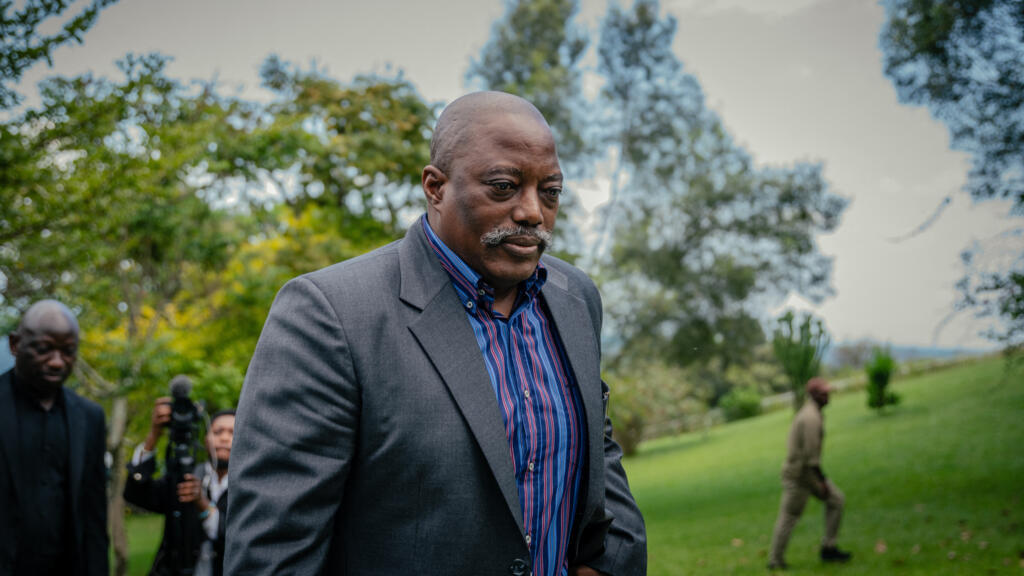
The death sentence handed to former president Joseph Kabila has deepened political and regional divisions in the Democratic Republic of Congo, exposing the fragile balance between demands for justice and hopes for peace.
Kabila, 54, was convicted in absentia on 30 September by the Military High Court in Kinshasa for treason and war crimes.
Prosecutors accused him of being a founder of the Alliance Fleuve Congo, the political wing of the M23 rebel movement, and the leader of the armed coalition AFC/M23. He has been living abroad since 2023.
The ruling has split opinion.
In Kinshasa, the government and its supporters frame it as a landmark step in the fight against impunity. In the east of the country, where Kabila still commands loyalty, many see it as a political attack that threatens peace efforts.
"We welcome this decision of the justice system," Christian Lumu, of President Félix Tshisekedi's Union for Democracy and Social Progress party (UDPS) youth wing, told RFI.
"Because whether we like it or not, the rule of law we are building under President Tshisekedi’s leadership rests on a clear principle: no one is above the law."
Former Congolese president Kabila sentenced to death for war crimes
Condemnation
However, the NGO Human Rights Watch said the move could be interpreted as a warning to political opponents that they could suffer the same fate.
The NGO's Africa director Lewis Mudge said he believed the manner in which the trial was held and the verdict bore the hallmarks of a political vendetta and showed that "the Congolese government is moving down a more authoritarian path".
"It was a trial with several political aspects to possibly send a warning to other political opponents," he said. "First, they stripped him of his immunity quite quickly. Then there was the fact that a trial took place rapidly and Kabila didn't even have a lawyer. And finally, the trial was held in a military court."
The verdict was also condemned by Sammy Jean Takimbula, a civil society leader in the east of the country, where Kabila continues to enjoy popularity.
The eastern region of the DRC, located on the border with Rwanda and rich in natural resources, including minerals, has been the scene of conflict for 30 years.
The violence intensified in early 2025, with the M23 armed group, supported by Rwanda, and Rwandan troops capturing cities including Goma in January and Bukavu in February.
International NGOs report mass killings and sexual violence in eastern DRC
"It's another weakening of the search for peace here in the east of the country," Takimbula told RFI.
"We understand that the Kinshasa government is not here for the people. It’s a government here for targeting, for their own interests, not for the benefit of the population. The people of South Kivu are suffering every day."
Asked about the potential risk Kabila's conviction might pose to ongoing peace process, particularly talks in Qatar between DRC authorities and the AFC/M23, Lumu said: "I don't think [there is a risk posed], because the discussions in Doha, or the upcoming [inter-Congolese] dialogues under President Tshisekedi, have only one objective: to consolidate unity, build peace and reconcile Congolese people."
He added: "These processes cannot be manipulated to protect those who refuse to account for their actions. Real justice must be done for reconciliation to be genuine. If we allow impunity, there will be no real reconciliation."
DR Congo and M23 rebels say they will sign peace deal mid-August
'A distraction'
For Takimbula, Kabila – who ruled DRC between 2001 and 2019 – had been working towards this reconciliation.
"Joseph Kabila came here to South Kivu," he said. "He held consultations with all the representative layers of civil society. And it was for peace efforts. They [the government] are accusing him of having allied with the M23. But these are the same authorities who continue negotiations [with M23], who are conducting prisoner exchanges."
"It’s a distraction. Condemning Kabila is just creating more problems," he added.
HRW's Mudge said that prosecutors had not presented any credible evidence against Kabila, who he said "when he was president, was at the forefront of the fight against the M23".
He added: "There’s also the timing: there will be elections [including presidential elections] in 2028. Joseph Kabila is seen as someone who could be very inconvenient for President Tshisekedi."
This article was adapted from the original version in French.







